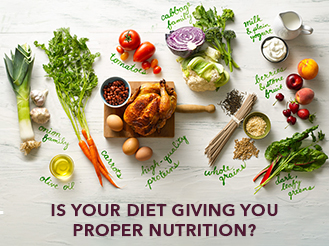You want to lose weight and you type
“how to lose weight in a week”
on Google, hoping to land onto a crash diet that works magic on your
body and your fat just vanishes into thin air. Well, most of the times
you end up disappointed as nothing works the magic that was promised.
While when it does actually work and you lose quite a lot of weight, you
tend to gain it back almost as quickly as you lost it or maybe at
double the speed.
What you actually need is a
healthy diet plan to lose weight.
A quick weight loss diet plan is not going to work in the long run, it might even be harmful to your body. It is necessary to have
nutrition food for weight loss.
You need to follow a balanced diet program that consists of all the
necessary nutrients that your body requires, in the right quantities. A
consistent intake of a balanced diet is the
best diet to lose weight fast.
Also,
a calorie calculator for food as well as a
body mass index calculator are amazing tools to customize your balanced diet according to your body.
What is a balanced diet?
A
balanced diet is a diet that consists of the right amount of calories
consumed in the right form, in the form of nutrients that your body
requires for its functioning. A balanced diet can be achieved by
consuming the majority of your calories in the form of :-
- Fruits
Fruit
is one of the six essential food groups recommended for a healthy diet.
Fruits are the best food that can be consumed on an empty stomach. It
acts as a great source of nutrition as well as a good snack. Although
fruits are high on sugar, they contain natural sugars. Besides, there
are several low-sugar fruits available such as citrus and peaches. It
should also be noted that fruits are far more helpful when consumed in a
raw form, rather than as a juice.
- Vegetables
Vegetables
contain essential vitamins and minerals and they are full of fiber too.
This makes them a crucial component of a healthy diet. There are
various sub-groups under vegetables: dark green vegetables, orange
vegetables, dry beans and peas, starchy vegetables and many other
vegetables. All of them are great sources of nutrition, but green leafy
vegetables are the ones that have the most nutrition value.
- Proteins
Proteins
primarily help with the development of the brain, muscles, skin, and
hair. A typical adult should consume a maximum 50 grams of protein per
day. Meats and beans are rich sources of proteins. For those who do not
eat meat; tofu, tempeh, and other soy-based products are excellent
sources of protein too.
- Dairy
Dairy
products provide essential nutrients such as Calcium and Vitamin D.
Yogurt, cottage cheese, sour cream, dips and other cultured dairy foods,
along with milk, butter and cheese are choices. These products should
be taken in moderation though, as they are major sources of fats as
well.
- Oils
Oils
should be consumed in very low quantities. It is better to opt for
low-fat and low-sugar versions of products that contain oil, such as
salad dressing and mayonnaise. Good oils can replace fattier vegetable
oil in your diet. Olive oil can be considered as a good choice of oil,
for your health.
- Grains
Whole
grains are low in fat and high in fiber. Additionally, they contain
complex carbohydrates that help you to feel full longer and prevent
overeating. Whole grain bread and whole wheat flour contain whole grains
as their primary ingredient. They should be consumed in the right
amount.

No comments:
Post a Comment